External monitoring of groundwater purification plant (GWRA)
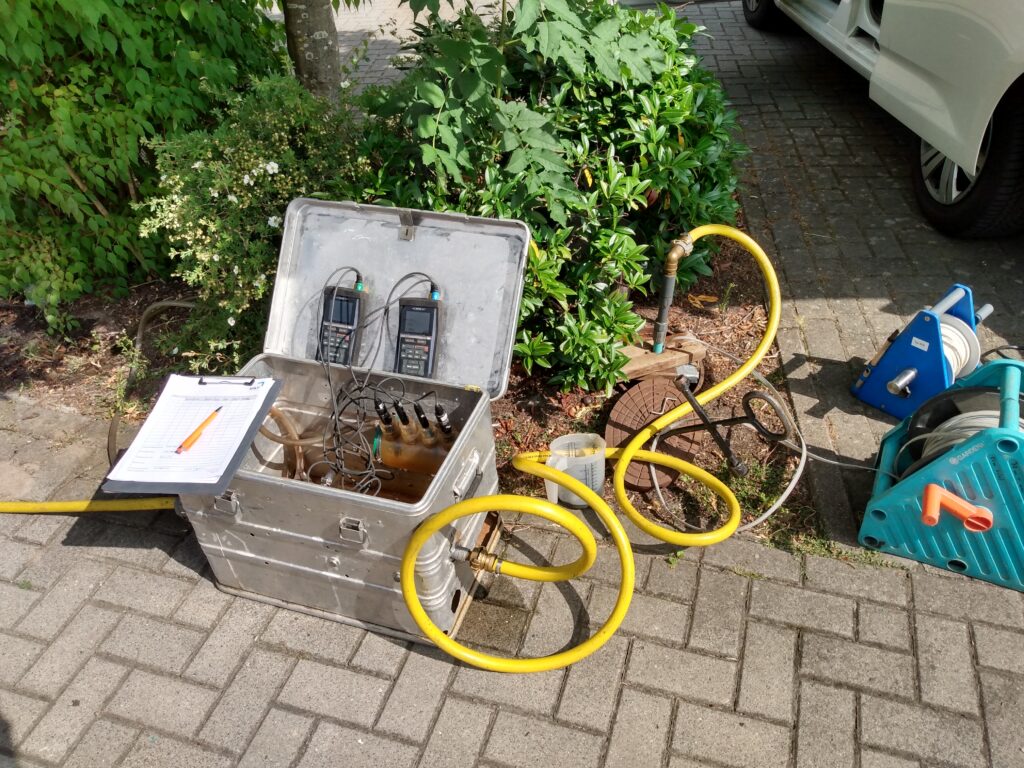

Groundwater damage was discovered, sufficiently investigated and pump and treat was determined as the appropriate remediation method. In consultation with the authorities, the pumping volume and the necessary treatment stages are planned and the groundwater purification plant (GWRA) is constructed and put into operation. But what actually happens next? It should be made clear that GWRAs do not run unobserved for a fixed remediation period and that they are to be shut down after [...]
Deconstruction planning and supervision of a former school in Hammer Strasse. Hamburg
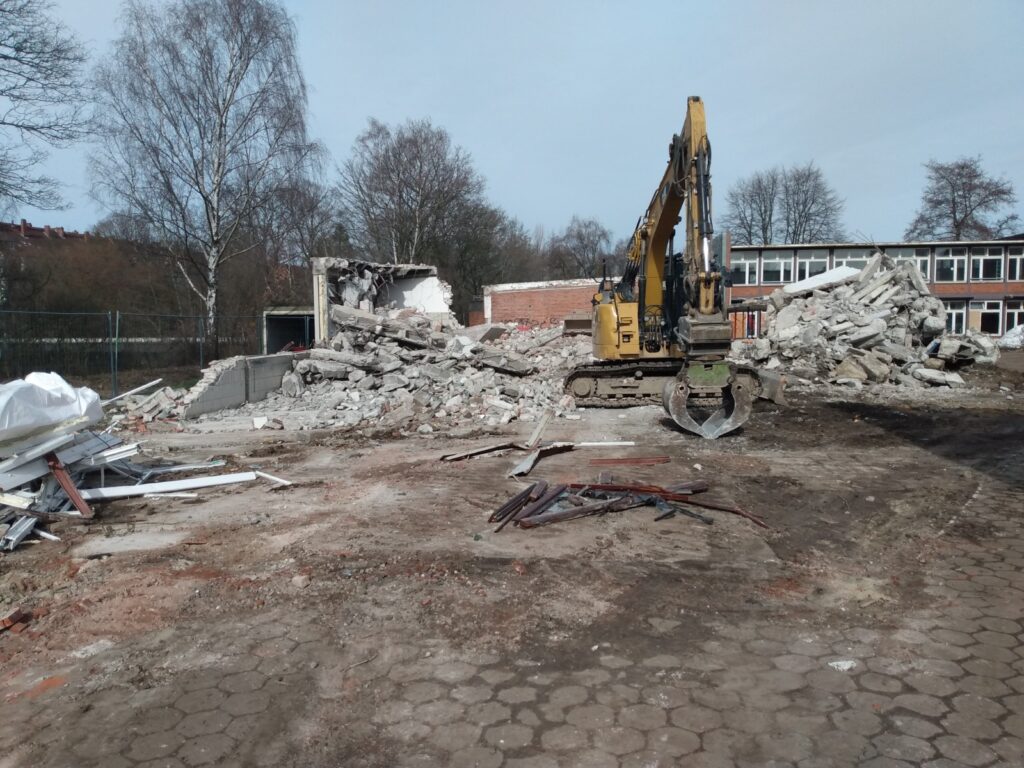

The public sector is planning to build a new school on the property at Hammer Strasse 124 in Hamburg. The property has served as a school site since the 1960s, with the northern buildings still in use today. The southern buildings have been vacant for some time and have since been made available as accommodation for refugees. The redesign required the demolition of the existing buildings and [...]
Successful conversion - archive research in an industrial monument
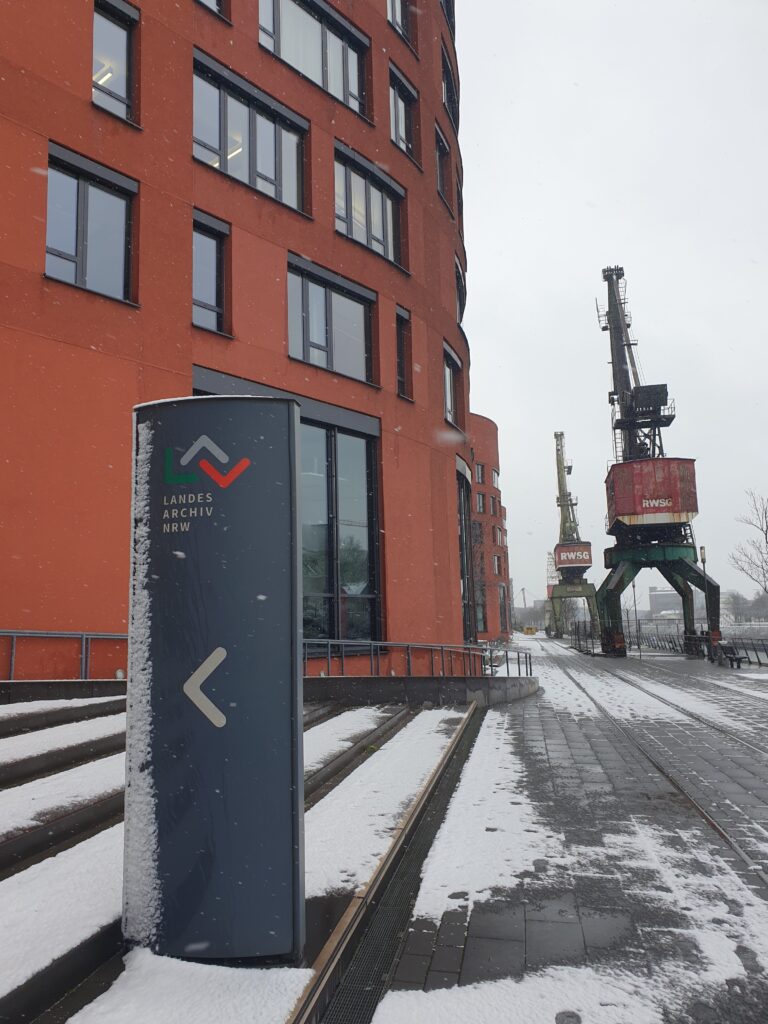

Duisburg's historic inner harbour is now home to the NRW State Archive (Rhineland department), the largest archive building in Germany. However, it is not only impressive due to its location directly on the water and the 76 metre high archive tower. It is also an impressive testimony to the successful reutilisation of historical building fabric and a sensitive building that takes into account the history of a place [...].
Ecological construction monitoring in the course of various construction projects
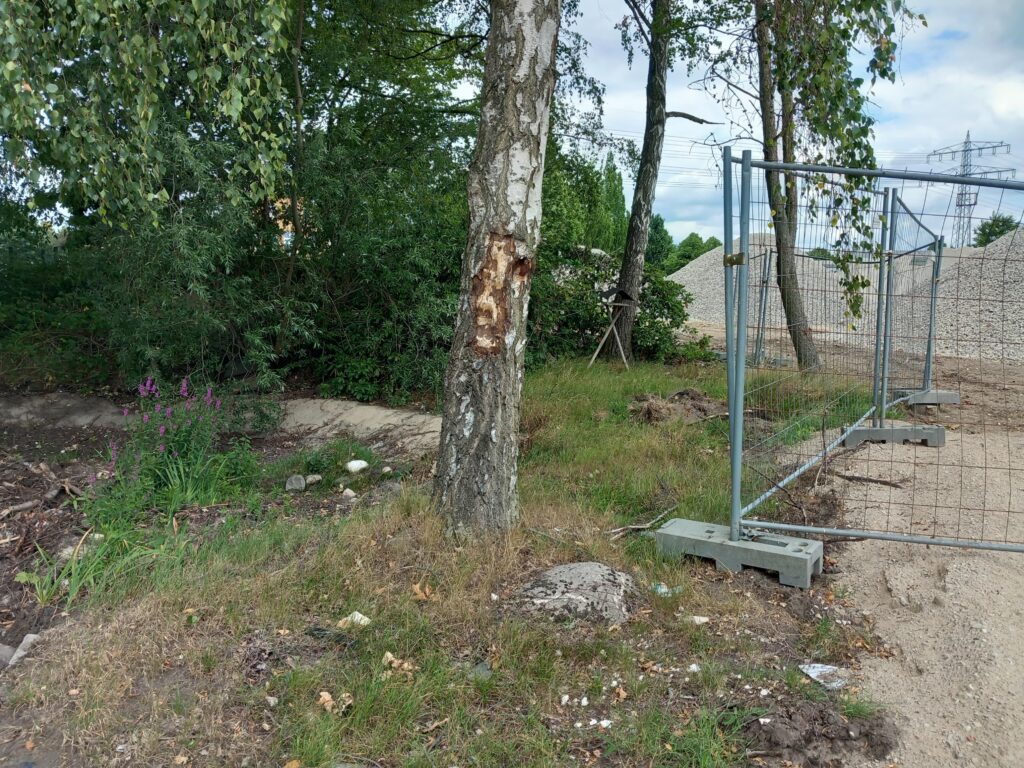

Ecological construction supervision (ÖBB) generally ensures the realisation of a construction project, taking into account the relevant environmental and nature conservation regulations as well as the subordinate guidelines, standards, etc. Other synonyms used for ecological construction supervision - there is currently a wide variety of terms - are environmental construction supervision (UBB), ecological construction monitoring (ÖkoBÜ), ecological construction supervision or [...].
Federal government increases protection for grasshoppers and species-rich forests


The broad-leaved sabrewing (Barbitistes serricauda) has its worldwide distribution centre in Germany. However, little is known about this insect species as it lives hidden in the treetops and its song is not perceptible to the human ear as it is in the ultrasonic range. As part of the federal government's "Biodiversity" programme, the project "ELSA - [...]
Innovative & sustainable living concepts for large cities: the boarding house
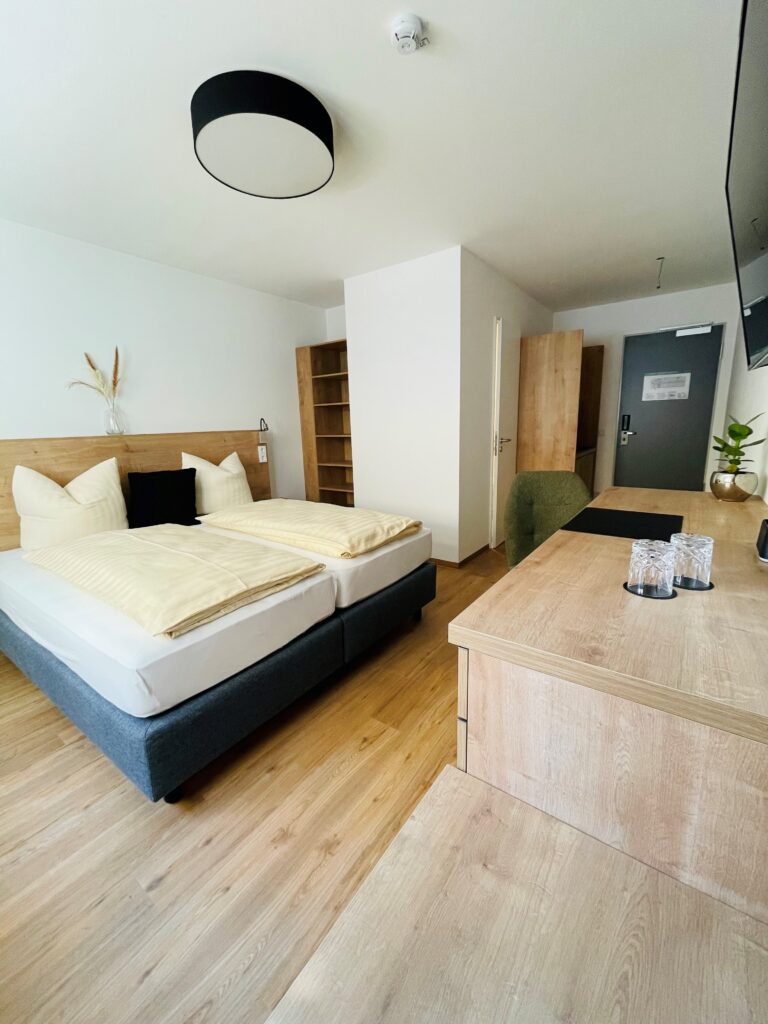

The boardinghouse concept in the context of sustainability in big cities is an innovative housing and accommodation option that aims to integrate sustainable principles in terms of housing and resource use. Boardinghouses are building complexes that offer furnished flats or rooms for short to medium-term stays. They are aimed at commuters, business travellers, students or [...]
LEIPZIG COMPANY RUN 2023!
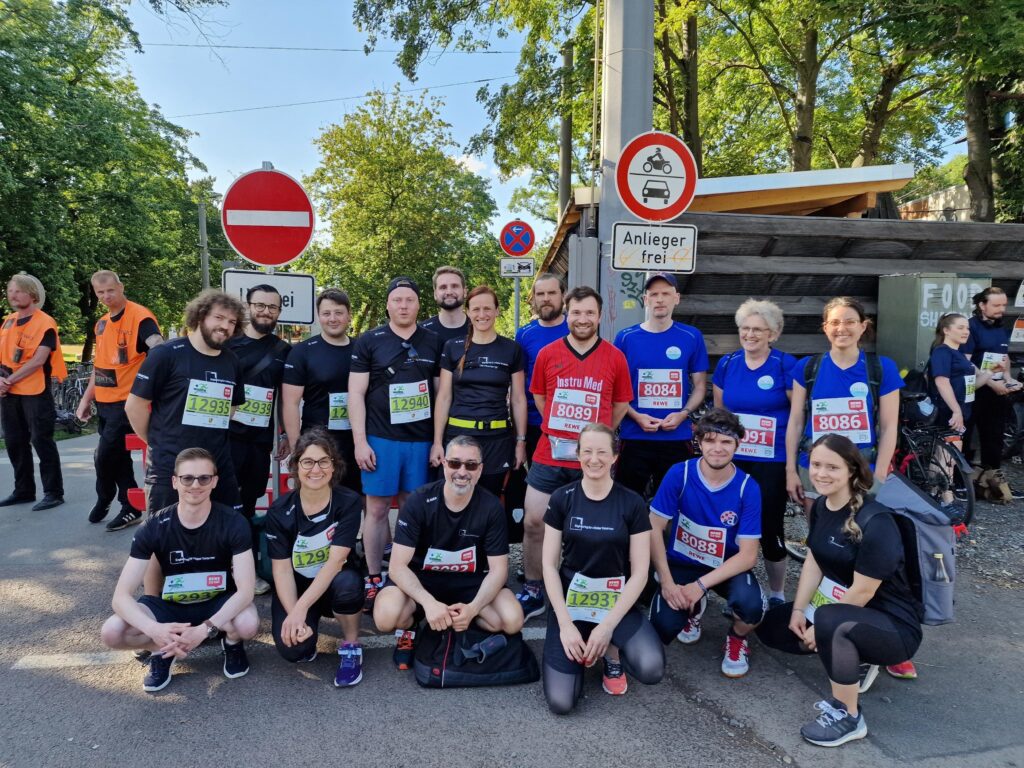

On 28 June 2023, IBGW and seecon Ingenieure took part in the Leipzig company run together. In total, more than 17,000 runners completed the 5 km course. The atmosphere was filled with anticipation, team spirit and pure enthusiasm. A big thank you goes to our wonderful teams who supported us with motivation and cool drinks!
Germany will miss its greenhouse gas reduction targets


Germany has set ambitious greenhouse gas reduction targets in the Federal Climate Protection Act (as of August 2021): Emissions are to be reduced by at least 65 % by 2030 and by at least 88 % by 2040 compared to 1990 levels. These targets are linked to EU and UN climate protection agreements. The EU Climate Law of the European Union has set stricter targets for 2030 (net reduction of 55 % compared to 1990) and [...]
Soil contamination of a chemical and radioactive nature
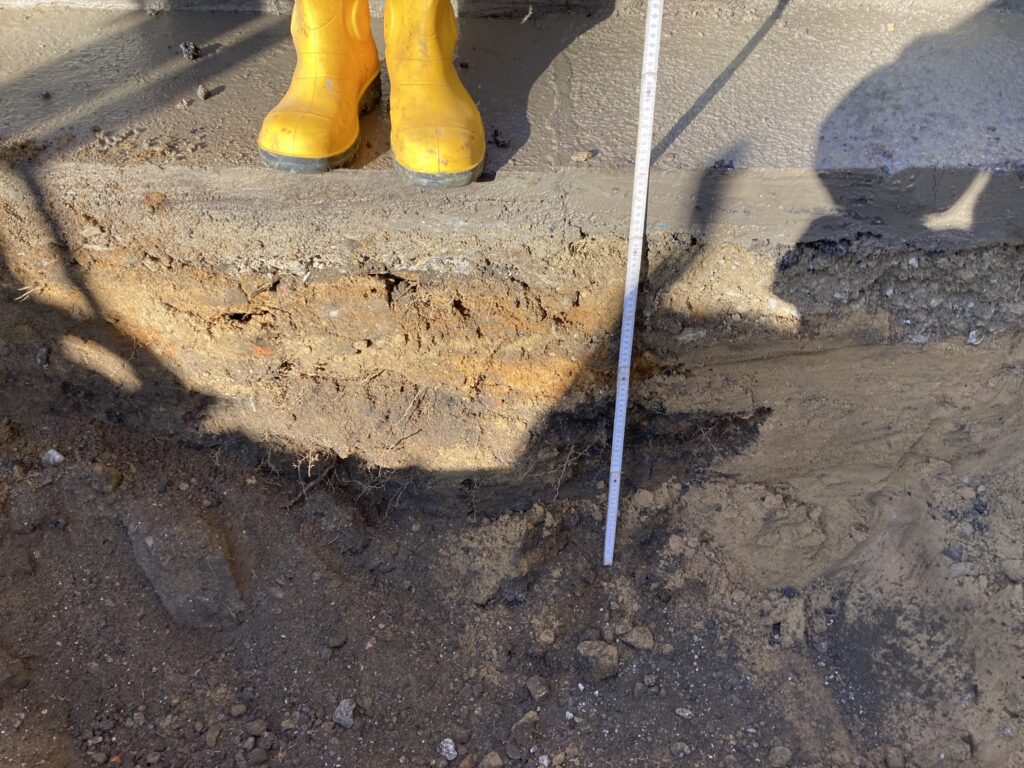

From 1861 to 1902, the chemical factory of Eugen de Haën was located in the List district of Hanover. Products for photochemistry, pharmacy, galvanoplastics and dyeing were produced there. In addition to various chemicals and elements, radioactive materials (uranium and thorium ores) were also used. In the course of numerous investigations by various specialised [...]
Obligation to bear the costs of evacuation due to the defusing of explosive bombs


Between 1940 and the end of the Second World War in 1945, around 2 million tonnes of bombs were dropped over Germany. A total of 23,000 tonnes of bombs were dropped on Hanover alone during 129 raids during the Second World War, of which around 10-15 % did not explode. These continue to pose a danger, as previous explosive ordnance finds have clearly shown that [...]

